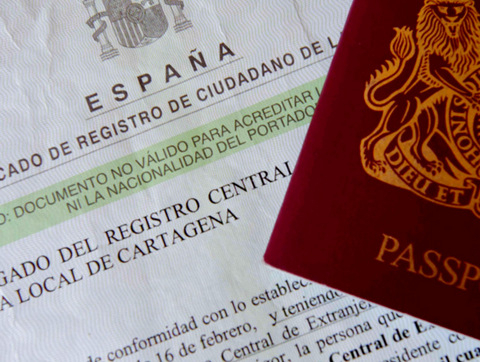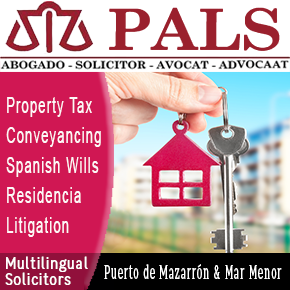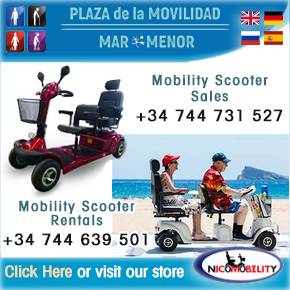

Guidelines for submitting articles to Mazarron Murcia
Hello, and thank you for choosing Mazarron Murcia to publicise your organisation’s info or event.
Mazarron Murcia is a website set up by Murcia Today specifically for residents of the urbanisation in Southwest Murcia, providing news and information on what’s happening in the local area, which is the largest English-speaking expat area in the Region of Murcia.
When submitting text to be included on Mazarron Murcia, please abide by the following guidelines so we can upload your article as swiftly as possible:
Send an email to editor@spaintodayonline.com or contact@murciatoday.com
Attach the information in a Word Document or Google Doc
Include all relevant points, including:
Who is the organisation running the event?
Where is it happening?
When?
How much does it cost?
Is it necessary to book beforehand, or can people just show up on the day?
…but try not to exceed 300 words
Also attach a photo to illustrate your article, no more than 100kb

How to sign on to the municipal Padron in Spain ( padrón)
Spanish News Today Factsheets
 Living in Spain: 1 Signing on to the municipal padrón
Living in Spain: 1 Signing on to the municipal padrón
Click for: Full list of factsheets, Click Full list of factsheets
A padrón certificate is essential in order to carry out basic bureaucratic procedures in Spain or vote
What is a padrón and why do I need one?
The Padrón is essentially a list compiled at municipal level of all the people who live within each Spanish municipality ( or council district).
Empadronarse – the verb used to describe the action of registering yourself on the municipal register of your local town hall.
Who should register?
All of those who live in Spain and have Spain as their habitual residence should sign on to the municipal padrón. There is no need to sign on to the padrón if you own a holiday home here, but your habitual residence is not in Spain. It is also not necessary to sign on to the padrón in order to buy a property.
There is a great deal of confusion amongst expats as to whether property owners who divide their time between the UK and Spain should sign on to the padrón, but unless you spend more time in Spain than abroad, it’s not necessary to sign up.
The padrón is basically a means by which local authorities formulate the quantities of residents they have registered as living within their own local areas, figures which are used by the councils to obtain correct funding via central government for basic services such as health and education.
A few years ago everybody buying a property was encouraged to sign on to the padrón, but when it became obvious that in coastal areas the padrón was no longer an accurate form of measuring the population this was discouraged and municipal registers were cleaned to remove anyone who was no longer a permanent resident.
Some expats who do not live here have signed onto the padrón in order to buy a car, but in reality this is a fairly small number. Nobody has actually ever given an official answer as to how this is to be circumvented, the advice often appearing on forums being to buy the car and then deregister once having purchased the vehicle, but that’s not from an official source, although it is a practical way of dealing with the situation.
Many expats fail to sign on to the padrón, then express concern when their needs are not taken into consideration, but as Spain clamps down on some of the irregularities of the past, signing on to the padrón is becoming increasingly important in order to ensure access to health cover and the right to vote. Being registered on the padrón doesn´t necessarily mean that those signed up will be subjected to fiscal checks or tax inspections, this is simply a local municipal register of residents.
How do I register on the padrón?
It’s not necessary to own your own house to register, those who rent, but live in an area can also be registered on the padrón.
Even living with family or friends is acceptable, as long as you can prove that you live at the address in question.
Where do I register on the padrón?
Each town council will have a dedicated municipal padrón office. This is very often inside the Town Hall, although in larger cities there may be more than one office. It’s quite normal for larger councils to have satellite offices which act as municipal offices in the outlying districts or suburbs but if in doubt, contact the Town hall and ask.
What do I need to take along in order to register on the padrón?
Simply go to the padrón office of your town hall and fill in the form they provide. Take along official identification, such as a passport, and also your NIE or residence certificate/card, a recent utility bill in your name, and the deeds to your house or a copy of your rental contract. Although you may have to return to collect your certificate, the actual registration is completed all on the same day.
What are the benefits of being on the padrón?
Better public services
Central Government allocates finances to the different municipalities according to how many people are on the padrón. Therefore, if you are not registered, your town hall is unable to claim money from central government for the provision of health centres, police officers, fire fighters and schools.
Access to benefits and social care
It is a common misconception that there are no Spanish social services available for expats. Non-nationals are just as entitled to services as their Spanish counterparts, providing they are properly registered with the authorities and fulfil basic fiscal status. However, you have to be registered on the padrón for a determined period of time to be able to gain entitlement to some income-related benefits and other aspects of social care available through social services at your town hall. This will include disability passes, benefits, access to social services.
A reduction in taxes
Depending on the town hall, registration on the padrón could mean deductions on some basic taxes and reductions in certain community charges and inheritance tax. Furthermore, those on the padrón can also often enjoy discounted courses, leisure and cultural activities, free language tuition, run by the town hall.
Voting rights
Unhappy with the way your local municipality is run? Then vote in the next elections. However, if you’re not on the padrón, you don´t have a voice, so in order to vote in local or European elections, make sure you’re registered on the padrón.
An easier life
Youll find you need your padrón certificate to carry out various administrative tasks, such as register for healthcare, register your car with Spanish number plates or enrol your children in school.
Renewing padrón certificates
It is necessary for non-EU nationals to renew their padrón registration, but not for EU citizens. However, many municipal padróns were cleaned between 2010 and 2012, as many people had sold up and failed to notify the authorities, so it is always advisable to check with your local authority if it is some years since you registered with them, particularly in the run-up to local elections, otherwise you may find that you are no longer on the list.
Obtaining copies of padrón certificates
Very often a copy of a padrón certificate is requested during the course of common bureaucratic procedures, as the actual physical certificate is only valid for 3 months.
Your local council will print off another copy of the certificate on request.
What happens in the eventuality of death or leaving Spain?
If you decide to leave Spain, contact the council and tell them you are no longer resident in Spain otherwise they will continue to claim for financing in order to support you. There is no tie-up between the death registry and the padrón, so it is necessary to notify the town hall in the event of the death of an individual registered on the padrón.
Image: Copyright Murcia Today
For other info to help you deal with common issues in Spain go to the index of Ex-pat fact sheets
















